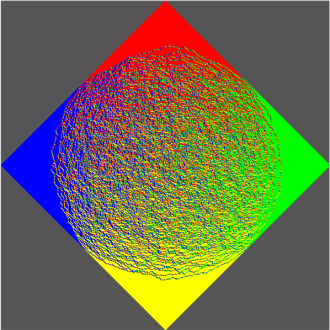
M2 ICFP

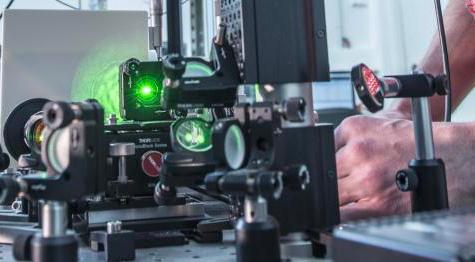
The M2 is organized into four tracks: Condensed matter physics, Soft matter and biological physics, Quantum physics: From the foundations to quantum technologies, and Theoretical physics.
The first semester is dedicated to courses (30 ECTS). Each student enrolls in a program (or track) in which he/she follows compulsory and optional courses. The student can include in his/her program one optional course from another area of study, after validation by his/her head of studies.
In second semester, four optional courses will be chosen from any program (4x3 ECTS). These optional courses must be approved by the head of the studies.
Students are expected to complete an internship relevant to their course of study (18 ECTS) April to june, in France or abroad.
The academic rules of the M2 can be found on this link :
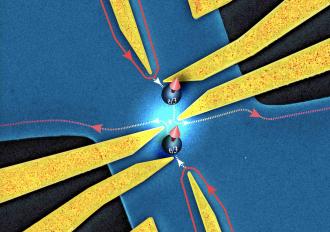
Courtesy of G. Feve LPENS
The Condensed Matter Physics track is designed to offer an advanced and comprehensive training program in the field of condensed matter physics. The diversity of systems and phenomena establishes this field as the most dynamic and extensive domain in contemporary physics. Our program emphasizes a strong conceptual foundation while fostering a deep appreciation for both theoretical and experimental aspects.
During the first semester, the curriculum is structured around three fundamental core courses: Condensed Matter Theory, Advanced Statistical Physics, and Electrons in Solids. Additionally, students have the flexibility to choose from a range of major options that cater to their interests, including topics such as transport and superconductivity, light-matter interaction, and numerical methods for theory.
In the second semester, students have the opportunity to further specialize in specific subjects or broaden their knowledge base by selecting from a diverse array of elective options. Starting in mid-April, the lab internship provides an opportunity to work within a research institute, paving the way for further pursuit of a PhD thesis.
To aid students in their research focus and career aspirations, our program hosts a series of seminars tailored for students and offers opportunities for lab visits. The prospects for graduates of this track are exceptionally promising, with many opportunities in academia (following completion of a thesis) as well as in top-tier positions within industry, start-ups, and other high-level professional environments.
First semester
Three compulsory courses :
- Advanced Statistical physics
- Condensed Matter Theory
- Electrons in Solids : Fundamentals and Experiments
Two optionnal courses (2 x 6 ECTS) to choose - schedule compatibility ensured for :
- Light-Matter Interaction in Quantum Nanostructures
- Electronic transport and superconductivity
- Electronic Structure Theory
Second semester
Four courses to choose among the second semester list of M2 ICFP (4 x 3 ECTS). Naturally related courses :
- Quantum Physics Out of Equilibrium
- Electrodynamics in Quantum Materials
- Localized spins in solids
- Physics of 2D Materials
- Reservoir-controlled quantum materials
- Topological theory in condensed matter
- Quantum physics and condensed matter in advanced technology
- Ultimate quantum conductors : Novel electronic states and transport
phenomena
Any 3 ECTS master physics course can be chosen after agreement with the professors in charge of the track.
Guidelines for choice of courses
Professors in charge of the condensed matter track : Valia VOLIOTIS and Christophe MORA
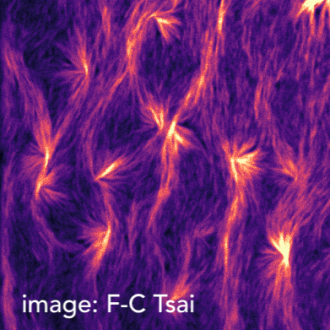
The Soft Matter and Biophysics track is aimed at students with an interest in both theoretical and experimental physics of living systems, soft matter physics, statistical physics and nonlinear physics. The track has a strong emphasis on studying the world around us and interaction of experiment, observation and theory. It has the flexibility to accommodate early specialization towards theory, data driven and numerical approaches or experiments. To favor a transition to real world research, be it in academia, industry or start-ups, project based evaluations and student cooperation are encouraged. Students who have taken the track mainly follow up with a PhD, however some have left for start-ups, industry and policy making.
During the first semester students are exposed to the background necessary to follow and conduct research in the above areas. Since the track has a broad scope in terms of studied problems, students have some freedom to choose their classes based on their interest and inputs from the tutors. All students must take the Advanced Statistical Physics class that provides a common scientific basis. They must also choose at least one course (or two) from Advanced Biophysics and Soft Matter Physics. The first semester also offers hands-on experimental class and data-driven computational classes, as options.
The second semester offers a wide range of courses that expose students to modern research topics in the wide range of subject areas covered by the track. The master ends with a 3 month internship that can be carried out anywhere in the world. The masters tutors with diverse experience in experimental and theoretical soft matter and biophysics are there to assist each student personally and also propose guidelines for choice of courses
. More generally, the teaching team is representative of the soft matter and biophysics community, and represents a network that can prove invaluable to students.
One compulsary course (6 ECTS) :
At least one of the two courses(6 ECTS) between — two are possible :
Three options (3 x 6 ECTS) to chose . The following courses are timetable-compatible :
- Advanced Methods in biological physics and soft matter
- Computational and data-driven physics
- Interfaces and morphogenesis
- Physics of fluids and nonlinear physics
During the first semester it will be possible to take one course from another master if the topic is not covered by the ICFP master. However, before taking a course from a non-ICFP program, the list of courses chosen must be validated by Aleksandra Walczak and Emmanuelle Rio.
Second semester
Four courses to be chosen from the list of second-semester courses (4 x 3 ECTS). Recommended courses :
- Active matter and collective behaviour
- Circuits and network dynamics in synthetic biology and neuroscience
- Confined flows and transfers in complex fluids
- Ecology, evolution and epidemiology
- Numerical methods for fluid dynamics
- Physics of multicellular systems
- Soft or Slender : mechanics of Nature-inspired, highly deformable bodies
- Turbulence
A course chosen from a master's program outside the ICFP with the agreement of the course director.
Professors in charge of the track : Aleksandra WALCZAK et Emmanuelle RIO
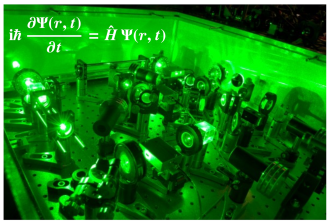
Quantum physics is at the heart of the behavior of matter from the microscopic to the macroscopic scale. It has fundamentally renewed our understanding of the structure of matter and its interactions with fields, also quantified, and continues to develop rapidly. It is also set to form the basis of new technologies, fostered by numerous national and trans-national initiatives.
The Quantum Physics track is designed to offer an advanced and comprehensive training program in modern quantum physics, from basic concepts to applications, including both theoretical and experimental aspects.
The first semester is structured around two fundamental mandatory courses: Advanced Quantum Mechanics, Advanced Statistical Physics. Students must also choose at least 2 and possibly 3 other long courses among a selection of course dedicated to quantum physics. The fifth course may be chosen in the proposed list of courses compatible with the weekly timetable.
The second semester offers a wide panel of advanced elective courses, where the students begin to specialize and broaden their knowledge basis. Starting in mid-April, the lab internship provides the opportunity to work within a variety of active research institutes, paving the way towards a PhD thesis.
To aid students in their research focus and career aspirations, our program hosts a series of seminars, joint with the Condensed Matter track, tailored for students and offers opportunities for lab visits. The Quantum Physics track paves the way to a PhD thesis in the world’s best labs and many career opportunities in academia, industry, start-ups, and other high-level professional environments.
First semester
Two compulsory courses (2 x 6 ECTS) :
At least 2 among (2 or 3 x 6 ECTS) :
Other timetable compatible courses (6 ECTS) :
- Condensed matter theory
- Electrons in Solids : Fundamentals and Experiments
- Electronic transport and superconductivity
- Computational and data-driven physics
Semestre 2
Four courses to be chosen from the list of M2 ICFP courses in the second semester (4 x 3 ECTS). Recommended courses :
- Cavity and circuit QED
- Quantum computing
- Quantum metrology
- Quantum physics out of equilibrium
- Quantum physics and condensed matter in advanced technology
- Reservoir-controlled quantum materials
- Topological theory in condensed matter"
- Ultra cold atoms
- Waves in disordered media and localization phenomena
A course worth 3 ECTS can also be chosen from any physics master's program, with the agreement of the course director.
Professors in charge of the track: Jérôme BEUGNON et Laurent SANCHEZ-PALENCIA
The second semester consists of a teaching period until March, followed by an internship from April to June. During this period, students must choose and validate a minimum of four courses, for a total of 12 ECTS. The range of courses on offer covers all disciplines where there is innovative scientific activity at international level, likely to attract future PhD students: in-depth studies in field theory and statistical mechanics, string theory, stochastic systems, complex systems, differential geometry, cosmology and related subjects, disordered systems.
The choice of internships and the orientation of the thesis are discussed with the course leaders at meetings and research seminars, during which the supervising professors strive to offer as accurate a picture as possible of research in theoretical physics.
First Semester
Two compulsory courses (2 x 6 ECTS):
3 courses (3x 6 ECTS) to choose among the first semester course list.
The following courses are timetable-compatible :
- Algorithms and computation
- Computational and data-driven physics
- General relativity
- Lie groups, Lie algebras and representations
- Statistical field theory and applications
Second Semester
Four courses to be chosen from the list of M2 ICFP courses in the second semester (4 x 3 ECTS). Recommended courses:
- Active matter and collective behaviour
- Statistical Physics Concepts & Tools for Complex Systems
- Conformal Field Theory
- Cosmology
- Differential geometry and gauge theory
- Particles in the Dark Universe
- Introduction to AdS/CFT
- String Theory
- Machine Learning
- Phenomenology of the Standard Model and Beyond
- Quantum Field Theory II
- Random geometry and non-unitary quantum field theories
- Statistical Physics of Disordered Systems
- From statistical physics to machine learning & back
A course worth 3 ECTS can also be chosen from any physics master's program, with the agreement of the course director.
Guidelines for choice of courses
Professors in charge of the track: Gregory SCHEHR et Marios PETROPOULOS
Pre-semester courses for Quantum Physics and Condensed Matter:
Tuesday, September 2nd : 9:00 am – 12:00 pm - 2:00 pm – 5:00 pm at Université Paris Cité
Wednesday, September 3: 9:00 am – 12:00 pm / 2:00 pm – 5:00 pm at Sorbonne Université
Thursday, September 4 – Sorbonne Université:
- electrons in solids: fundamentals and experiments
- electronic transport and superconductivity
Friday, September 5: Day off
First semester
Information session : 1st September, 2025 at 12.30pm - Room Jaurès (29 rue d'Ulm, Paris) followed by path meetings at 2.00pm :
Quantum Physics and Condensed Matter: Room Conf IV (24 Lhomond - ENS)
Soft Matter: Room Langevin – Bâtiment Jaurès (29 Ulm - ENS)
Theoretical Physics: Room Marbo – Bâtiment Jaurès (29 Ulm - ENS)
Study period: September 2nd, 2025 to December 15th, 2025
Break: October 27th to 31th, 2025
Research seminars: November 3rd to 7th, 2025
Monday: PSL
Tuesday: IPP
Wednesday: Université Paris Cité
Thursday: Université Paris-Saclay
Friday: Sorbonne University
Review week: December 16th to 19th
Christmas break: December 22th 2025 to January 02nd, 2026
Examinations: January 5th to 09th, 2026
Second Semester
Information session : January 13th, 2026
Quantum Physics and Condensed Matter :
Soft Matter :
Theoretical Physics :
Study period: January 14th to March 25th, 2026
Break: February 21th to March 1st, 2026
Review week: March 25th to 27th, 2025
Examinations: March 30th to April 3th, 2026
Full-time internship: April 06th to June 26th, 2026
Internship defense: From June 29th to July 3rd, 2026
Campus Acces
- UPCité
- Sorbonne université
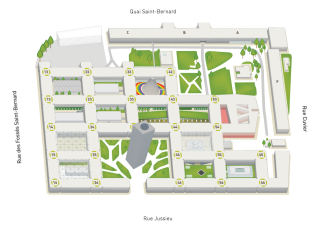
The internship in a laboratory (experimental or theoretical) will take place from April 06th to June 26th, 2026
The choice of internship is made during the first semester. It may perfomed in France or abroad.
The work is assessed on the basis of:
→ a report submitted by mid-june
The exact date will be determined by your track directors
→ an oral presentation
→ and the recommendation of the internship supervisor.
→ The internships will be defended during the first week of July.
The internship agreement is compulsory and must be signed by all parties before the start of the internship. It must be obtained from your enrolment university (i.e. the institution where you paid your tuition fees).
There are two exceptions:
→ Normaliens Ulm must use an ENS Ulm agreement.
→ Normaliens Saclay must use an ENS Saclay convention.
- Students registered administratively at the ENS/PSL Paris :
All ENS documents (internship agreements, amendment) can be obtained at the following address: intranet
Contact: Medina MAHREZ
- Students registered administratively at Université Paris Cité:
Contact: Alev BITIGEN
More information:
- Students registered administratively at Sorbonne University :
Contact: Evelyne GILBERT-MONGEOT
- Students registered administratively at Institut Polytechnique de Paris:
contact: Ny-Kanto ANDRIAHENINTSOA
- Students registered administratively at Paris Saclay :
ICFP Master's internship conventions can be generated online using the Pstage website:https://pstage.universite-paris-saclay.fr/esup-pstage/
Contact : Linah RAKOTOARIJOELINA
Internship offers to consult: ici
Submit an internship offer: ici
Having a broad view of the main current research topics is difficult but crucial to choose
the internship and PhD subjects, and more generally the research directions in physics.
During the first semester, a series of seminars “Physics Now” will allow the M2 ICFP students
to broad their knowledge on the current hot topics in physics and get information on
research groups and themes in France and abroad.
See here the schedule
Consult the ICFP Master page for recruitment information..
